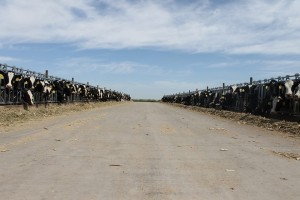*This article is not a substitute for the advice of an attorney.*
This week I had the chance to head up to take a little road trip to speak at the Northeast Texas Cattlemen’s Conference in Winnsboro. Even though it was a cold, early morning, there was a really great turn out for the conference. I enjoyed the chance to visit with these producers about ag leases and appreciated their insightful questions. Welcome to anyone reading this blog from the Conference!
It was a busy week in ag law–here are a few of the stories making headlines this last week in January.
*TCEQ Executive Director Issues Emergency Order Affirming LCRA Plan. The TCEQ Executive Director issued an emergency order granting a request from the Lower Colorado River Authority to deviate from its water plan in a way that will likely cut off water supplies to downstream rice farmers for the third year in a row. Under the plan, downstream farmers would not receive water unless the combined storage in the Highland Lakes reaches 1.1 million acre feet. The Director’s grant is only preliminary, however, and a final determination will not occur until a decision is made by the TCEQ commissioners at a meeting on February 12, 2014. [Read order here.]
* A Water Battle Highlights Problem with Texas Water Law. A battle over water in South Texas highlights a problem with the legal approach in Texas that provides different laws for groundwater and surface water. As explained in the article, many rivers in Texas are fed by groundwater causing connectivity between the two. Thus, when large-scale pumping projects are proposed (especially in counties without Groundwater Conservation Districts), these pumping projects may well impact river flows. Currently, Val Verde county is dealing with this issue as a groundwater pumping project attempts to sell groundwater from the county to cities like San Antonio. [Read article here.]
* The Danger of EPA Providing Farmers Information to the Public. An ongoing legal dispute between the National Pork Board and American Farm Bureau Federation against the Environmental Protection Agency involves the question of whether the EPA may release individual farm information to environmental groups making requests under the Freedom of Information Act. Specifically, the information that was released includes the owner names, addresses, GPS coordinates, phone numbers of nearly 100,000 farmers and ranchers across the US. This week, Jillian Kay Melchoir wrote an article explaining the dangers of releasing this type of information, focusing particularly on a 2012 agro-terrorism attack by the Animal Liberation Front on a California farm that caused more than $2 million in damage and could have resulted in the loss of life. The farmers whose information was released by the EPA fear that they could now be targets as well. [Read article here.]
* New Mexico Lawmaker Seeks to Strengthen Right to Farm Protection. In the face of nuisance lawsuits against 11 dairies in the state, New Mexico State Representative Yvette Herrell has introduced a bill in the New Mexico Legislature intending to strengthen the state’s Right to Farm law by clarifying the limited situations under which an agricultural operation may be deemed a nuisance. [Read article here.]
* Environmental Groups Threaten Lawsuit Against Colorado. Last week, WildEarth Guardians sent a Notice of Intent to Sue to the State of Colorado for violating the Endangered Species Act. Specifically, the group alleges that by issuing water use permits in the Rio Grande Basin, the state has caused an “ongoing and imminent future ‘take’ without a permit authorized by law of the endangered Rio Grande silvery minnow…and/or Southwestern willow flycatcher…located in the middle Rio Grande.” In short, WildEarth Guardians claim that by issuing permits for water use out of the Rio Grande, the State of Colorado has violated the Endangered Species Act with regard to these two species. [Read notice here.] A similar case was brought in Texas with regard to the whopping crane and currently awaits a decision on appeal from the United States Court of Appeals for the Fifth Circuit. [Read prior blog discussing case here.]
* Colorado Cantaloupe Farmers Sentenced. Eric and Ryan Jensen, the Colorado cantaloupe farmers responsible for an outbreak of listeria that killed 33 people in 2011 were sentenced to 5 years probation and 6 months home detention after pleading guilty to federal misdemeanor charges related to the outbreak. Additionally, the brothers were ordered to pay $150,000 to the victims’ families as restitution. [Read article here.]












